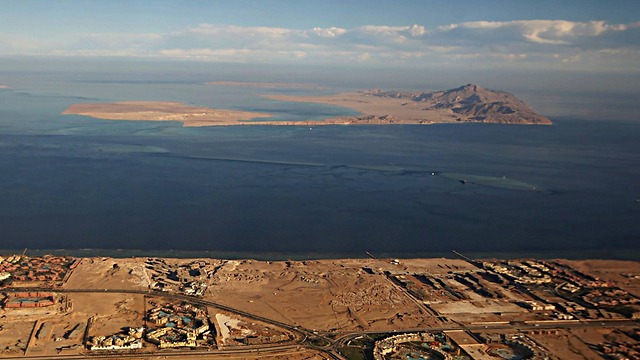Will Egypt-Saudi island agreement affect Israel?
Smadar Perry and Itamar Eichner/Ynetnews/Published: 04.12.16/Israel News
Analysis: The Egyptian agreement to hand sovereignty of strategic islands in Straits of Tiran to Saudi arouses Israeli concerns; Saudi Arabia signaled that Israeli freedom of navigation will not be impeded, and they will respect Israel-Egypt peace treaty.
Egypt told Israel in advance about the agreement to transfer sovereignty over the islands of Tiran and Sanafir high ranking Israeli officials claim, adding that Netanyahu told the cabinet about the agreement two weeks before it happened.
The two islands – which are inhabited only by a Multinational Force Observers (MFO) detachment and an Egyptian military outpost – are located at the mouth of the Gulf of Eilat in the Straits of Tiran. Whoever controls these islands is able to control the movement of ships through the straits.
Saudi Arabia controlled the islands until 1950, when they were given over to Egyptian custodianship. Since then, they have been occupied by Israel two different times – once during the 1956 Suez Crisis, and again following the 1967 Six Day War. Every time they were returned, they were returned under the framework of evacuating the Sinai.
The Israel-Egypt peace agreement guarantees that Israeli vessels have freedom of navigation through the Straits of Tiran. However, with these islands passing into Saudi sovereignty, there is fear that this freedom of navigation may be in jeopardy.
It’s for precisely this reason that the Saudis told the Egyptians and the Americans that they “recognize and respect” the peace agreement which was signed in 1979, and that they will continue to uphold the arrangements stipulated in the military addendum to the peace treaty, specifically as it relates to Israeli freedom of movement in the straits. As long as this freedom of navigation is guaranteed, Israel will not express any objection to the handover.
It’s possible to draw these conclusions by analyzing statements from Saudi Foreign Minister ‘Adel Jubair during a press conference held on Sunday, who subtly allayed Israeli concerns by emphasizing that Saudi actions in the straits do not constitute a security or military threat to Israel. However, he clarified that “Saudi Arabia will not engage in any kind of negotiations with Israel, nor will Saudi Arabia sign any agreements with Israel until the Palestinian issue is solved.”
Legal experts in the Foreign Ministry are currently looking into the legal ramifications of the transfer of these islands from Egypt to Saudi Arabia. Specifically, they’re looking into whether or not this presents a need to change the military addendum to the Israel-Egypt peace treaty. Preliminary findings by high ranking Israeli officials suggest that there will be no need to change the addendum, in light of the fact that the Saudis publicly stated that they will abide by the treaty.
The Americans are encouraging Israel to accept the Egypt-Saudi agreement – a sign that the US views the agreement as something which will strengthen the moderate Sunni states in the region. Saudi officials also described this agreement with Egypt as “dramatic” in creating a Sunni front against Iran. At the same time, Saudi Arabia is allegedly secretly working on a reconciliation agreement between Fatah and Hamas and even invited Hamas Politi-bureau Chief Khaled Mashaal to Riyadh.






















